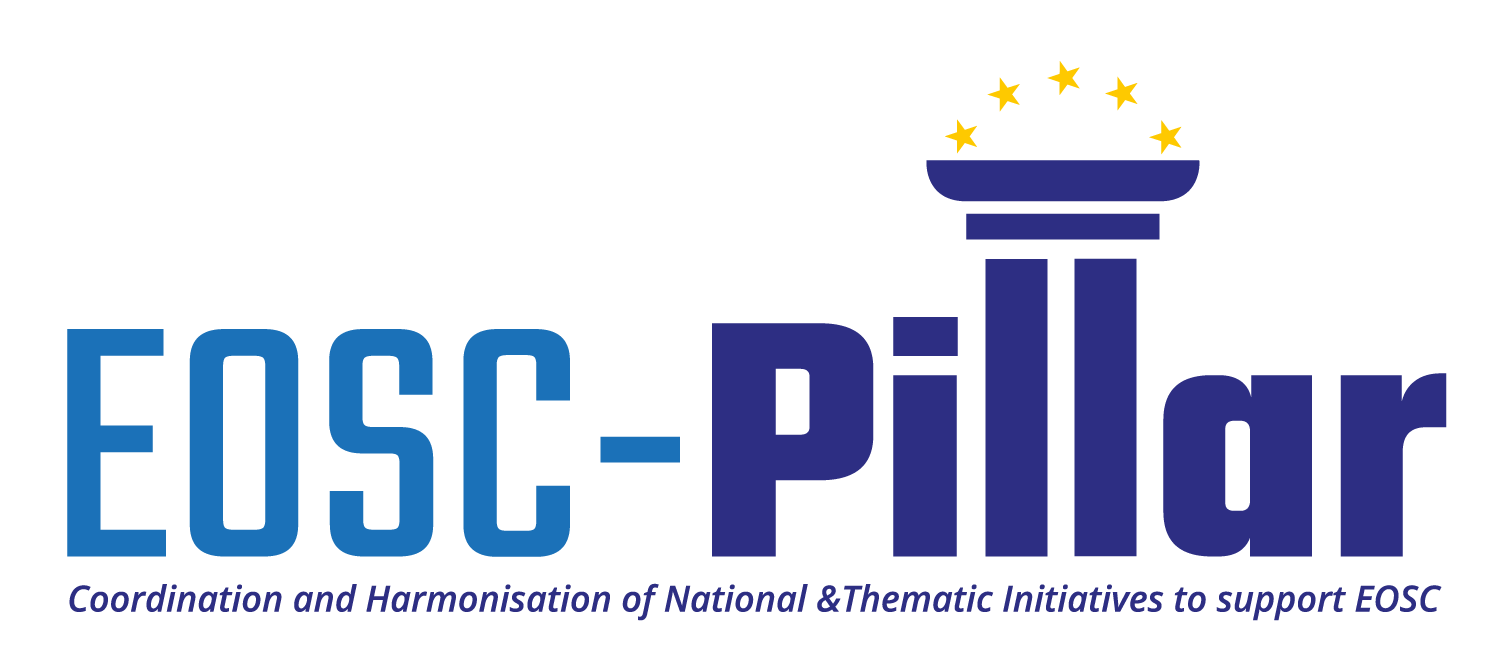
The InfraEOSC-5 Collaboration
In early 2020, the EOSC Community took another crucial step on the road to the development and implementation of the European Open Science Cloud, as seven key EOSC-related Horizon 2020 projects signed a Collaboration Agreement in support of the EOSC Governance.
The Agreement involves all the projects supported within the INFRAEOSC-05-2018-2019 call. The Agreement provides a useful framework for all parties to collaborate on a wide range of topics, in order to enhance synergies in all mutual activities related to the EOSC. The projects also agreed on a Joint Activity Plan, which will guide them towards the first iteration of EOSC. Overlaps and complementarities among projects were identified, as well as specific areas for potential cooperation, ultimately aimed at the development of a common strategy to synchronise activities with the EOSC Working Groups.
The six Task Forces
The projects agreed on a Joint Activity Plan, which is guiding the collaboration. Overlaps and complementarities among projects were identified, as well as specific areas for potential cooperation, ultimately aimed at the development of a common strategy to synchronise activities with the EOSC Working Groups.
One of the first results of the collaboration was the creation of six Task Forces, which are working on specific topics with the support of EOSCsecretariat,eu:
- Communications and Events: Aligning EOSC-related common messaging through information sharing between projects and mutual sharing of project news & results.
- FAIR: Reviewing and standardising FAIR policies and guidelines in order to enable FAIR-aligned services and repositories.
- Landscaping: Defining common targets and methodology for the National Initiatives landscaping activities.
- National Policies and Governance: Collating, discussing and engaging with policymakers and national policies to foster the uptake of Open Science OS practices.
- Service Onboarding: Discussing procedures and solutions to facilitate the flow of services stemming from involved projects into the EOSC Service Catalogue.
- Training and Skills: Synchronising information by establishing shared training resources and common training events.
Between April and May 2020, EOSCsecretariat.eu collected the position papers on EOSC compiled by the INFRAEOSC 5b projects, the subgroup that specifically includes the four regional projects covering all corners of Europe, as well as the thematic project ExPaNDS.
Please find the collection of position papers on Zenodo at this link: https://zenodo.org/record/3831561
The InfraEOSC-05 Collaboration
EOSC-Nordic’s overall objective is to foster and advance the take-up of EOSC at Nordic level by coordinating relevant initiatives taking place in Finland, Sweden, Norway, Denmark, Iceland, Estonia, Latvia and Lithuania; bringing them to bear in the context of the EOSC. The project aims to foster and coordinate all EOSC-relevant initiatives within the Nordic & Baltic countries and exploit synergies to achieve greater harmonisation at policy and service-provisioning level not only across the Nordic and Baltic region, but also with other countries, in compliance with EOSC agreed standards and practices.
EOSC-Pillar gathers representatives of the fast-growing national initiatives for coordinating data infrastructures and services in Austria, Belgium, France, Germany, and Italy, to establish an agile and efficient federation model for open science services covering the full spectrum of European research communities.
EOSC-Synergy will expand the capacity and capabilities of the EOSC by leveraging the experience, effort and resources of national publicly funded digital infrastructures in a coherent way, therefore acting also as an incentive for national resource providers. EOSC-Synergy extends the EOSC coordination to participating countries by harmonising policies and federating relevant national research e-Infrastructures, scientific data and thematic services, bridging the gap between national initiatives and EOSC. The participating countries are: Spain, Portugal, UK, Czech Republic, Slovakia, Poland, the Netherlands, and Germany.
NI4OS-Europeaims to be a core contributor to the EOSC service portfolio, commit to EOSC governance and ensure inclusiveness at the European level for enabling global open science. The project supports the development and inclusion of the national Open Science initiatives in 15 Member States and Associated Countries in the EOSC governance. NI4OS-Europe aspires to instil within the community the EOSC philosophy and FAIR principles. It also provides technical and policy support for the on-boarding of service providers into EOSC.
ExPaNDS is the EOSC Photon and Neutron (PaN) Data Service. PaN Research Infrastructures are service providers with high relevance for the success of EOSC. Through ExPaNDS for national PaN RIs and PaNOSC for PaN ESFRIs, coherent FAIR data services will be enabled to the scientific users of all European PaN facilities, universities and even industry.
FAIRsFAIR aims to supply practical solutions for the use of FAIR data principles throughout the research data life cycle. Emphasis is on fostering FAIR data culture and the uptake of good practices in making data FAIR. FAIRsFAIR plays a key role in the development of global standards for FAIR certification of repositories and their data, contributing to policies and practices that will turn EOSC into a functioning infrastructure.
EOSCsecretariat.eu delivers 360° support to the EOSC Governance while working openly and inclusively with communities to co-create an all-encompassing European Open Science Cloud. It coordinates the InfraEOSC-05 Collaboration.



